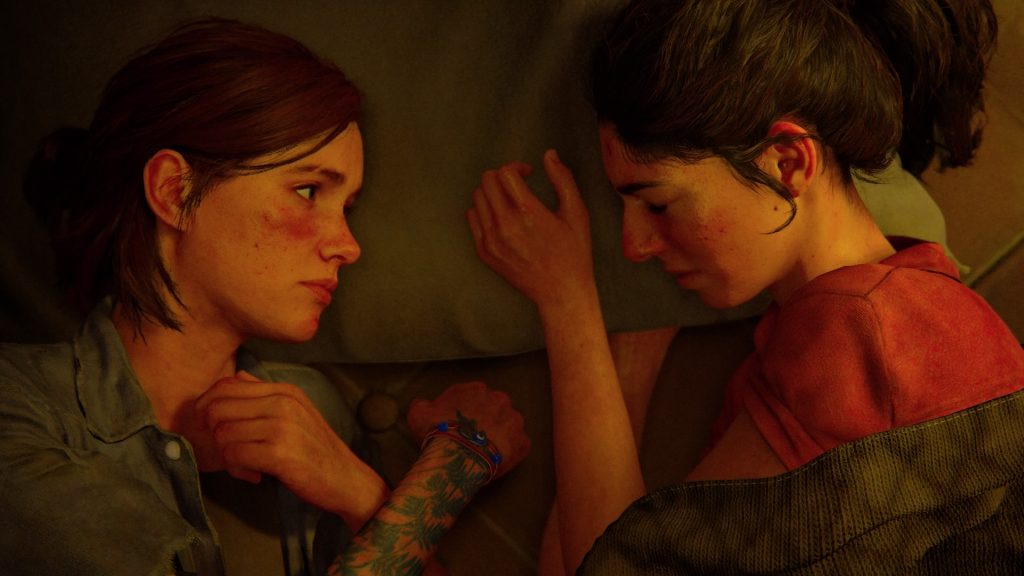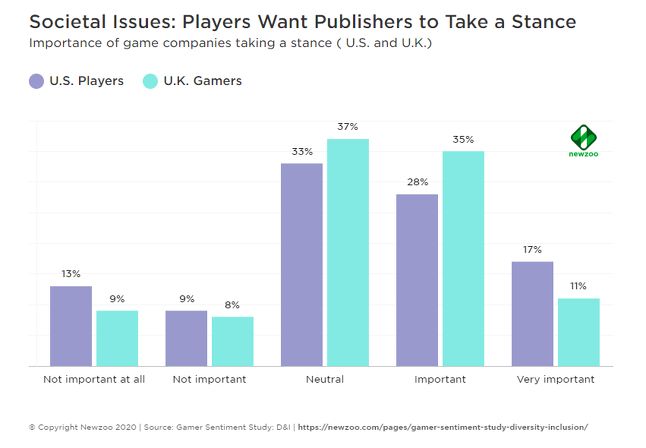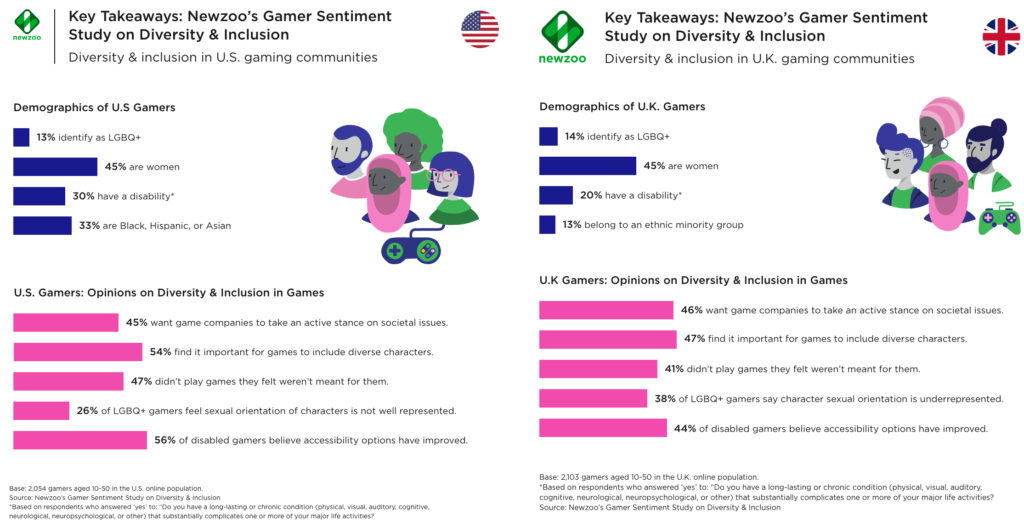
Half of US and UK players want more diverse characters in video games
Diversity and inclusion is something that we strive for here at Gayming Magazine. It’s something that the world of video games has slowly been improving on too, just look at games like The Last of Us Part 2 and indie darlings like A Summer’s End. Diverse characters and stories in video games are happening, despite the clamours of clowns that wish otherwise.
It turns out that the desire for more diverse characters in video games isn’t as small as some would like to believe, either. Thanks to research from Newzoo, a publication that specializes in giving insights into the games market, we now know, via GamesIndustry.Biz, that diversity is something at least half of players in the US and UK care about.
In their latest Gamer Sentiment Study on diversity and inclusion, which asked 4,000 respondents their thoughts, 54% of US players said that diversity is important in game characters. For UK players it was a smidge lower, with just 41% of responding gamers feeling as though that diversity was important.
Again, thanks to GamesIndustry.Biz, we have a graph below that explains the overall stance of the respondents.

As you can see, while there was indeed some who felt fairly neutral on publishers taking a stance, there was at least 46% of UK and 45% of respondents that felt it was important for game companies to take a stance on societal issues.
Considering some game companies have stated that they want to steer clear of ‘politics,’ this could make it clear that the outlook they’ve chosen to take isn’t something that players actually want. Of course, some game companies and publishers could also just continue in being cowards. That’s an option too.

Other key takeaways from the NewZoo study was that at least 45% of gamers asked were women, and that at least in the US, 33% are Black, Hispanic, or Asian. The UK however is far behind in that regard, with a disappointing 13% being part of a minority ethnic group.
Other stats included that 30% and 20% of respondents have a disability, and 13% and 14% identify as LGBT. While these are promising stats, the above information just goes to prove that the video game industry is still alarmingly white and male.




